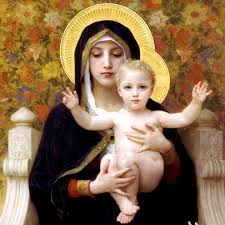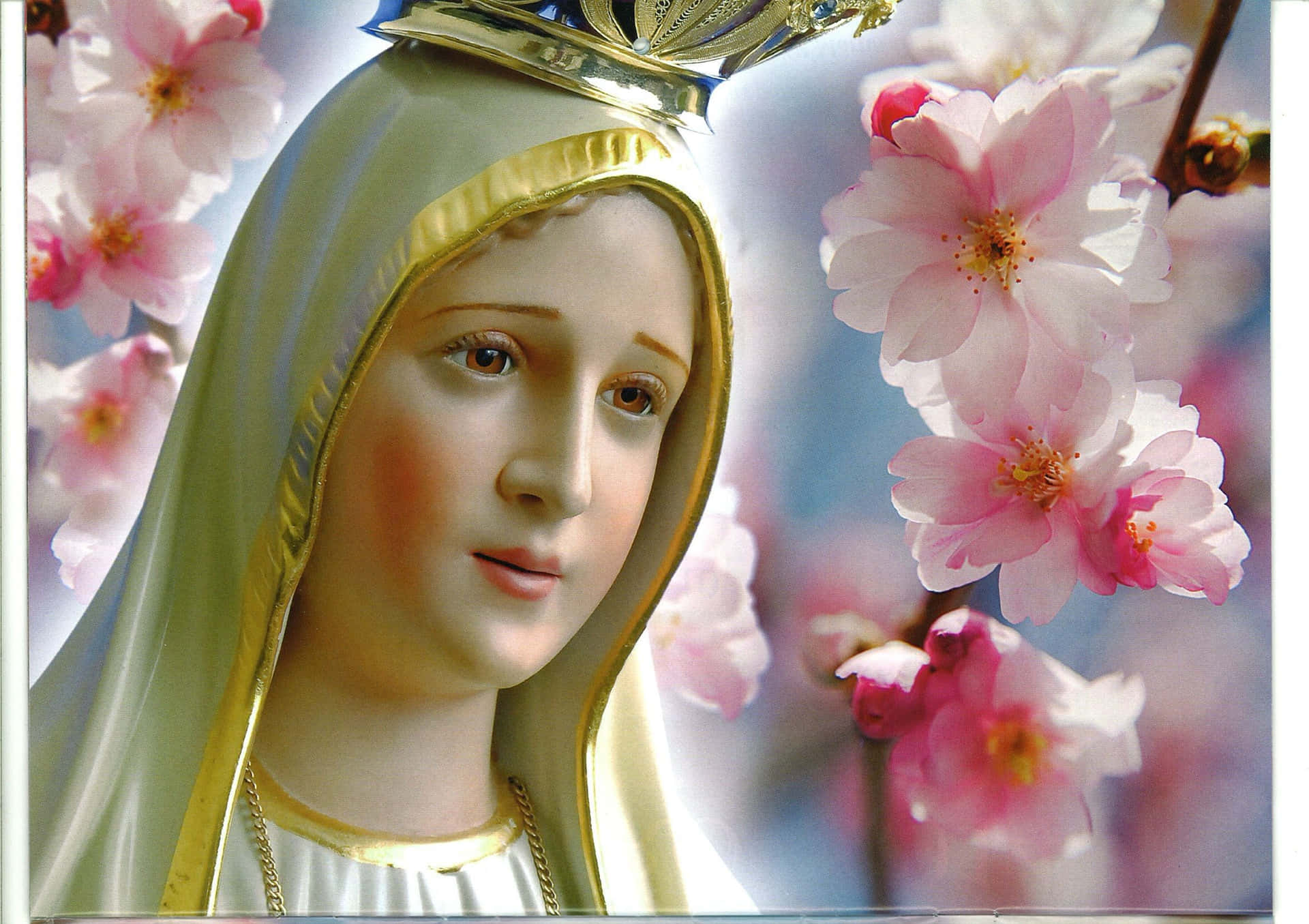Mary, Mother of the Church: A Foundation of Ecclesial Unity
Introduction: Defining Key Concepts
This discourse explores the multifaceted role of Mary, the Mother of God, within the Catholic Church, focusing on her significance as a unifying figure. We will analyze her theological role, drawing upon biblical accounts, papal pronouncements, and established theological frameworks such as the concept of Theotokos (God-bearer), the application of Marian apparitions within the ecclesiological framework and the principle of intercession within the context of Catholic faith. The significance of Marian devotion and its impact on fostering communal unity will be examined. The concept of ecclesiology, the study of the Church, will provide the lens through which Mary's influence is assessed.
Mary's Theological Role: The Theotokos and Salvation History
Catholic doctrine affirms Mary's unique role as the Theotokos, the God-bearer, a title formally defined at the Council of Ephesus in 431. This affirms her pivotal position within salvation history. The Annunciation narrative (Luke 1:26-38), understood within the framework of Christological theology, highlights God's initiative in choosing Mary as the mother of Jesus, emphasizing her complete obedience to divine will, a crucial element within the theological concept of kenosis (self-emptying). This event, a pivotal moment of divine grace, established Mary’s essential role in the Incarnation, the central mystery of Christian faith.
Biblical Manifestations of Mary's Faith and Humility
Mary's profound faith and humility are evident throughout scripture. The Magnificat (Luke 1:46-55), her canticle of praise, exemplifies her deep understanding of God's plan and her willingness to embrace her role in God's redemptive work. The Magnificat, analyzed through the lens of biblical hermeneutics, reveals a prophetic and deeply theological consciousness, highlighting her connection to the Old Testament tradition of praise and prophecy, paving the way for an understanding of Mary as a model of faithful discipleship.
Mary, Mother of the Church: A Papal Proclamation and its Ecclesiological Significance
Pope Paul VI's declaration of Mary as "Mother of the Church" in 1964 provided a formal theological articulation of a long-held tradition. This title transcends a purely symbolic designation. It emphasizes her ongoing spiritual motherhood extending to all believers, illustrating the ecclesiological principle of communion and the maternal care extended to the entire body of Christ. This title signifies not only her role in the birth of Jesus but her continuing spiritual relationship and her powerful intercession on behalf of the Church.
Mary as a Unifying Force: Fostering Ecclesial Communion
Mary's unifying influence within the Church stems from her role as a model of faith, obedience, and love. Her unwavering commitment to God's will serves as an inspiration to all Christians, fostering a sense of shared devotion and purpose. The concept of communio, emphasizing the unity of believers in Christ, finds a powerful expression in devotion to Mary, who embodies the values of faith, hope, and charity that sustain the unity of the Church.
Marian Devotion and its Impact on Spiritual Life: Models from the Saints and the Catechism
The profound devotion to Mary throughout Church history is evidenced in the writings of numerous saints, such as St. Louis de Montfort. Their emphasis on Mary's role in fostering spiritual growth aligns with the teaching of the Catechism of the Catholic Church which explicitly affirms Mary’s continuous role in the life of the Church (CCC 964). This emphasizes a dynamic, active, and ongoing presence of Mary within the Church's life, functioning as a catalyst for holiness and spiritual maturity.
Mary as a Model of Holiness and Obedience: The Power of the "Fiat"
Mary's "fiat," her complete and unconditional acceptance of God's will (Luke 1:38), serves as a powerful example of unwavering faith and obedience. This model of Christian discipleship transcends time and cultures, inspiring believers to embrace God's plan in their own lives. This serves as a testament to the importance of unwavering faith and obedience within a theological framework, particularly important for the practical application of theological concepts within a believers daily life. This "yes" embodies the theological virtue of obedience and trust in God's divine plan, serving as a powerful example for spiritual discipleship.
Mary's Universal Motherhood: Transcending Boundaries of Culture and Ethnicity
Mary’s maternal love transcends cultural and ethnic boundaries. She is presented as a mother to all, symbolizing inclusivity and universal acceptance within the Christian faith. This serves as a strong reminder of the universality of the Gospel and the inclusive nature of the Church, promoting a sense of common identity and shared spiritual heritage.
Marian Apparitions and their Contemporary Relevance
Throughout history, reported Marian apparitions have reinforced devotion to Mary and served as occasions of spiritual renewal. Events such as Lourdes and Fatima, when analyzed through the lens of social and religious history, demonstrate the capacity of Marian devotion to inspire faith and hope within specific social and cultural contexts. The significance of these apparitions is seen in their continued impact on individuals and communities, demonstrating the enduring relevance of Mary’s message of faith, hope, and love.
Mary and the Eucharist: A Profound Connection
The profound connection between Mary and the Eucharist is a core aspect of Marian theology. Mary’s role in the Incarnation and her participation in the sacramental life of the Church are intrinsically linked to the Eucharist, the central act of Christian worship. The Eucharist, often understood as the culmination of God’s redemptive work, reveals an intimate connection between Mary, Jesus, and the entire Church, emphasizing the transformative power of the sacramental life within the faith.
Conclusions and Recommendations
Mary's role as Mother of the Church, firmly grounded in scripture and tradition, is far more than symbolic; it is profoundly ecclesiological. Her life, characterized by unwavering faith, humility, and complete obedience to God's will, provides a powerful model for all believers. The unifying effect of Marian devotion underscores the importance of emphasizing this aspect of Catholic faith in fostering greater ecclesial unity and promoting a deeper understanding of the Church's identity and mission. Further research should explore the cross-cultural expressions of Marian devotion and its influence on social cohesion within diverse communities. The practical application of Marian theology should continue to be explored to fully realize its potential for fostering spiritual growth and promoting unity within the Church.
Reader Pool: Considering the multifaceted nature of Mary's role and the diverse perspectives on Marian devotion, how might a balanced approach to Mary's veneration within the Catholic Church best foster unity and address potential concerns?





